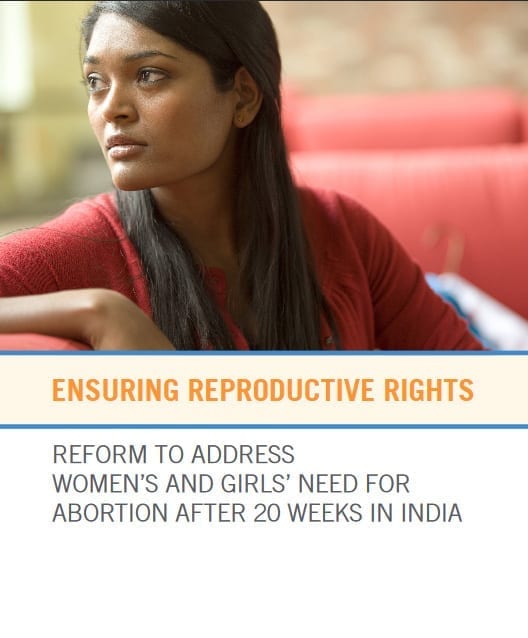Fighting to Ensure the Right to Food for Pregnant Women in India
In India, 63,000 women die from pregnancy-related causes every year-more than anywhere else in the world. The causes of maternal mortality are
well-known and largely preventable, with malnutrition being a main contributing factor.
The Center for Reproductive Rights filed a legal memo in support of the petitioners in People’s Union of Civil Liberties v. Union of India, a
Supreme Court case concerning the right to food in India. The case was filed in 2001 and is still being litigated today. In November 2007, the Court
issued an interim order in the case upholding the right of all pregnant women living below the poverty line (BPL) to continue receiving nutritional
benefits through the National Maternal Benefits Scheme (NMBS), a government program that aims to prevent maternal deaths by alleviating the risks posed
to pregnant women by anemia and malnutrition.
In its order, the Court clarified that pregnant women are entitled to nutritional benefits under the NMBS in addition to cash incentives for antenatal
care and institutional delivery which are currently offered under a separate government program. However, the Court also pointed out that NMBS may
conflict with strategies promoted by the government of India to curb population growth and child marriage. Building upon this statement, the Ministry
of Health and Family Welfare filed an affidavit to the Court in July 2011 proposing an amendment to deny NMBS payments to BPL pregnant women who are
younger than 19 years of age or have at least two children as a way to discourage additional births.
Petitioners, represented by Human Rights Law Network, challenged the proposed amendment because it would infringe upon rights enshrined in
international treaties to which India is a party. It also constitutes a retrogressive measure that violates international law. In September 2011 the
Center submitted a legal memorandum in support of the petitioners. The Center’s legal memo argues that the proposed amendment would violate the right
to survive pregnancy and childbirth, which is comprised of several human rights including the rights to food, non-discrimination, and reproductive
self-determination.
Furthermore, despite numerous political commitments and policy targets to improve access to family planning, contraceptives are not easily available to
most women in India. Contraceptives are beyond the financial reach of women living below the poverty line, leading to a high incidence of unplanned
pregnancies. The proposed amendment ignores this reality and would unfairly punish women for becoming pregnant for a third time when in fact they lack
the means to control their fertility.
Similarly, most married adolescent girls under 19 years of age are not able to control the timing of their marriage, let alone the timing of their
pregnancies. Child marriage is widely practiced in many parts of India despite being banned by India’s Prohibition of Child Marriage Act and without
regard for the health risks and risk of mortality associated with early pregnancy, almost 50 percent of girls are married before age 18.
The government has a responsibility to ensure the right to survive pregnancy and childbirth for vulnerable subgroups of pregnant women by protecting
their right to food, ensuring contraceptive access, and enforcing the law against child marriage. The Center urges the Supreme Court to reject the
proposed amendment which would put the Government of India in violation of international law.

